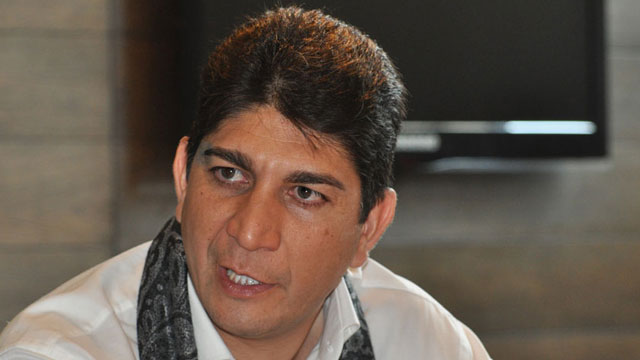
Vodacom’s latest numbers must be deeply worrying for its principal rival, MTN. While the latter is facing immense turmoil — a R75bn fine in Nigeria, the departure of its long-serving group CEO and a collapsing share price — the former is managing to grow its market leading position in South Africa while expanding its profit margins.
Vodacom’s report card for the six months to 30 September 2015 shows that the telecommunications group, which is active in five markets in Southern Africa — South Africa is by far the largest of these — is firing on all cylinders in spite of the fragile economy.
Its earnings growth accelerated ahead of the revenue line as cost-containment exercises continued to bear fruit and as it began putting the impact of enforced cuts to wholesale inter-network call fees, better known as mobile termination rates, behind it.
Voice revenues continued to fall, as expected, but growth in data sales, up by a third, coupled with a healthy performance outside South Africa, helped lift total revenue by 6,4%.
Profit margins, when measured using earnings before interest, tax, depreciation and amortisation, expanded by 2,1 percentage points to 36,7%, taking it firmly ahead of the 35,6% margin reported by MTN’s South Africa operation in the six months to end-June 2015.
And Vodacom is printing money, despite investing R6,2bn in its network in the past six months. Free cash flow surged by 78,2% to R2,2bn, while operating cash flow expanded by 30,7% to R5,8bn.
It had just enough money in the bank at the end of September to be able to buy acquisition target Neotel in cash.
However, the Neotel deal is still facing significant obstacles. Telkom, MTN, Cell C and Dimension Data were all in court this week challenging the deal’s approval by the communications regulator, Icasa, while Competition Tribunal hearings, scheduled to start on 23 November, are likely to hear strong arguments put forward by many of the same companies as to why the deal should not be allowed to proceed.
Opponents of the deal say Icasa broke its own rules and even went against its own legal advice in approving the deal. If the court agrees, it certainly won’t be the first time the authority, crippled for years by weak leadership, has bungled in this way.
But Vodacom CEO Shameel Joosub claims not to be worried, even if his rivals win their court challenge. “Icasa has already done a lot of the work, so I’m not sure they’ll have to redo everything. The big one is the tribunal. We have to get it through the tribunal.”
Vodacom’s rivals worry that allowing the operator to get access to Neotel’s radio frequency spectrum assets, even with conditions attached, will put it in an unassailable position, allowing it to deploy next-generation 4G/LTE mobile infrastructure ahead of them, thereby entrenching its dominance in the South African telecoms sector to the detriment of competition and ultimately of consumers.
Government is yet to publish a policy on how spectrum bands crucial for delivering mobile broadband will be allocated, though the telecoms minister, Siyabonga Cwele, has promised that it will be published before the end of the first quarter of 2016. Once published, Icasa has said it intends auctioning it off to the highest bidders. Joosub says Vodacom will participate in that process, even if the company’s attempt to acquire Neotel is successful.
The acquisition of Neotel, if it goes ahead, coupled with other looming corporate action, looks set to transform the local telecoms sector fundamentally in the coming years.

Telkom this week confirmed that it is conducting a due diligence of Cell C. Joosub says he won’t necessarily object to Telkom buying Cell C. “We’d like to see the structure and what they are planning to do with all the spectrum, but the principle of consolidation between Telkom and Cell C is fine. We are comfortable with that.”
The recent acquisition by Multisource of iBurst parent Wireless Business Solutions (WBS) could also have an impact, Joosub believes. Multisource, which is backed by former top bankers Paul Harris and Michael Jordaan, intends using WBS’s spectrum to build a 4G/LTE mobile broadband network.
But Joosub says WBS is a “clear target for either Cell C or MTN, or even Telkom”. At the very least, WBS’s new shareholders will have to seek a roaming agreement of some kind with one of the established mobile operators, he says.
While the market consolidation accelerates, Vodacom is not sitting still with its strategic growth plans. Though most of its capital expenditure in the past year has been directed at expanding its mobile broadband infrastructure, it intends ramping up its spending on fibre broadband into homes and businesses in the coming year ahead as it challenges Telkom’s dominance over fixed lines.
Part of its strategy to become a converged fixed and mobile player involves a push into video-on-demand (VOD) services. Here Joosub says Vodacom will launch its own VOD product in the new year to challenge the likes of Naspers’s ShowMax and PCCW’s ONTAPtv.com.
Vodacom is also talking to Netflix and other local and international VOD players in the hopes of providing them with access to its billing platform, allowing them to provide content to end users without them having to incur additional data charges. Under the plan, consumers will be able to access their favourite VOD service and pay for it by deducting the money from their airtime (for prepaid users) or having it added to their invoice (in the case of those on contract).
- This piece was first published in the Sunday Times




